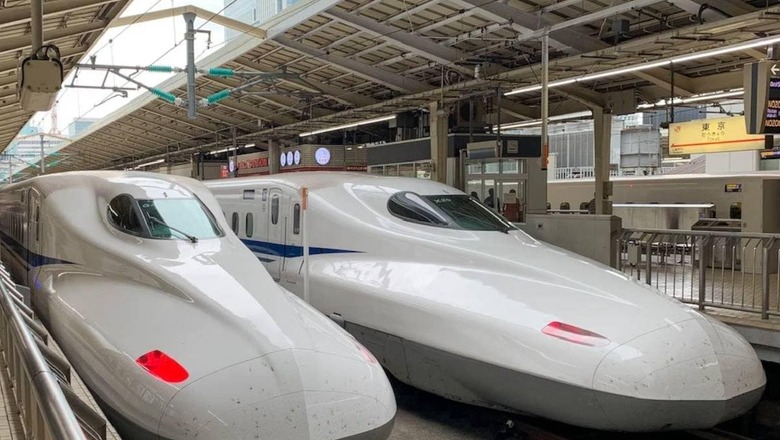
views
A 350-metre-long mountain tunnel on the country’s first high-speed rail corridor between Mumbai and Ahmedabad has been completed near Zaroli village in Gujarat’s Valsad district.
The National High Speed Rail Corporation Limited (NHSRCL), which is constructing the corridor, celebrated the moment by carrying out a final blast to remove the last layers of rock close to the tunnel’s entrance.
“The biggest challenge for us was how to keep the alignment of the tunnel absolutely straight because the bullet train will run at a speed of 350 kmph and a minor alignment flaw can play a spoilsport. So every specification has to be followed precisely and you will not find a deviation of even a single millimetre,” S P Mittal, Chief Project Manager of the Valsad section, told PTI on Thursday.
“We have just dug the skeleton structure of the complete tunnel and the finishing work will start now,” he added.
According to Mittal, it took more than a year and a large workforce to complete the tunnelling work.
He also expressed great satisfaction as it happened to be the first mountain tunnel built under his direct supervision.
A total of seven tunnels are proposed to be made on the 508-km route between Mumbai and Ahmedabad and the work for the second one will start very soon, Mittal said.
The NHSRCL has awarded the contract to Larsen and Toubro and the technique that has been used to make the tunnel is the well-established New Austrian Tunnelling Method (NATM), which has already been used in India for rail and road projects in several mountain areas.
“What makes us celebrate it is that it is the first tunnel in India through which a train with a speed of 350 kmph will pass,” Mittal said, adding that his team did not face a single untoward incident over the entire construction period.
When blasts are carried out for such tunnels, the safety of the workers and people residing in the vicinity are paramount, he said.
“We took every precaution so that stones, boulders or any other such material did not spread in the nearby area and hurt villagers or our workers,” Mittal said.
After coming into existence in 2016, the NHSRCL laid the foundation stone of the bullet train project in 2017 and it was proposed to be ready by December 2023. However, land acquisition issues delayed the ambitious project.
Though the construction work is going on in full swing, the new deadline for the project’s operationalisation is yet to be announced.
“A commuter using this bullet train can finish the 508-km journey in two hours and seven minutes. At present, the train journey takes about five hours,” the official spokesperson of the NHSRCL told PTI



















Comments
0 comment